|
Tru Tattoo is a beacon of empowerment and community, a transformed sanctuary, born from a crackhouse into an all-women’s tattoo and beauty shop. Led by women who champion beauty as empowerment, Tru Tattoo offers an array of beauty services ranging from nail art to non-invasive treatments while actively supporting sister-female-owned businesses. In an industry historically dominated by men, Tru Tattoo carves out a haven for everyone, amplifying voices on crucial social issues like substance abuse and homelessness in New Mexico. Beyond their artistry on the skin, Tru Tattoo leaves a lasting imprint through weekly flash deals, monthly events, and ongoing charity projects, embodying a commitment to personal expression and community betterment.
The percentage of women with tattoos surpasses that of men by 18%, with approximately 59% of women and 41% of men reporting having at least one tattoo, according to a survey by Lightspeed in 2024. However, in the global community of tattoo artists, men constitute 75% while women make up 25%, showing a significant gap. Many women who have tattoos are familiar with the discomfort of entering poorly lit tattoo shops, feeling objectified by male staff, and enduring unwelcome advances during the tattooing process. Tru Tattoo helps to create safe spaces for art and expression. Many patrons of Tru share similar sentiments. One individual expressed in a Google review, “All of the ladies were so sweet and welcoming. I came into the shop and automatically felt like a friend.” Another reviewer commented, “I love how it is an all-female tattoo shop. They make you feel very welcome.” Perhaps that is part of what makes art, particularly an intimate experience such as body art, so important - the sense of community and safety. - Samantha Nagel
0 Comments
Ryan Cassata, a talented singer-songwriter, actor, performer, published writer, LGBTQ+ activist, and transgender motivational speaker, has impacted the music industry. With over 650 performances nationally and internationally, Ryan has released seven original and critically acclaimed musical albums. Notably, he was the first openly trans performer at the Vans Warped Tour and has graced the stages of prestigious venues such as Jazz at Lincoln Center and The Oregon Shakespeare Festival's Green Show. Ryan's music has solidified his reputation as a true force in the industry. His latest collection with his band, The Top Surgeons, titled "This Machine Kills Transphobia," features punk and hardcore songs that aim to challenge systems of oppression, particularly sexism and transphobia.
Where did your journey in music begin? I first played guitar when I was about six years old. I would stare at my older brother's guitar, which he had already given up on. It was too big for me to carry - let alone play. I begged my mom for lessons, and after enough persistence, she said okay. Our school's music teacher came to the house with a kids' guitar that someone had handcrafted. It was the perfect size for me. I started lessons immediately. When I was 12, my other guitar teacher asked me, "Is guitar going to be your hobby or your passion?" I didn't know yet. He passed away months later, leaving me devastated before I could even answer his question. I looked up to him, and his influence made me realize that music was my passion. I would work as hard to get good at guitar, singing, and piano. So I could live out this dream. It was his dream, too. Did you have in your head when you started what sound your music was going to offer? When I first started writing songs, I only listened to classic rock and the origins of punk. I hated pop music - with a passion. I thought my music would fit into a classic rock-sounding genre. I had no clue that I would fall in love with so many different genres and that they would blend into my songs. I’m excited about this record. Growing up on Long Island (one of the hardcore punk/emo/pop punk capitals in the U.S.), I wanted to play in a hardcore punk band so badly. In the summers, we would form teenage garage bands in Queens and mosh with each other. I got knocked out a couple of times in mosh pits growing up. I don’t regret any of it. The music was already the center of everything for all of us. We played all day long into the early hours of the morning. It was a time in my life that I’ll always smile about. I feel like I’m getting to live that teenage fantasy again, except more professionally and with an audience. It feels full circle in a lot of ways. Anyway, I dreamed about making this record for a long time, and I’m glad I finally did it. Transitioning is different for everyone. How did the music evolve in the process? I started writing songs when I was 12. That was when I first came out as queer. Shortly after that, I came out as genderqueer. Then, at 14, I came out as trans. So, I have been writing songs just as long as I have been out. My songwriting had fewer queer themes back then. I would mostly write love songs and anti-war songs. Sometimes, I would write about being trans. It's like that now, too. I write about being trans and queer a lot, but I write about other topics way more. If I wasn't trans, I maybe would have just written anti-war songs for the rest of my career. Who knows! The music evolved as I got older, listened to more genres, and practiced more. Hah. I couldn't sing at the beginning of my career, but eventually, I found my voice. Practice, age, and time - all those things evolved my career. Being trans affected it because of the political climate and my experience with my body and in my body, but I wouldn't say it's the main reason for how my music evolved. Tell us about your new album, "This Machine Kills Transphobia," and how The Top Surgeons elevate the music. I wrote the entire record in three days. I think I wrote Queers to the Front, Burn the Cis-Tem, T4T, and What's With Straight Dudes Claiming They're Straight? all on the same day. One day I had an idea to make a fast punk album about Queer and Trans themes. Due to the political climate and 15+ years of being out, I had plenty to say. It was fun to make the songs. I created the music first and the lyrics second for all the songs besides "The Truth, The Life, The Way," which came to me all at once. The mood was set before I knew what each song would be about. I recorded the first things that would come to me without much lyrical editing. I believe tracks 2-4 have the same lyrics I thought of originally - my first thoughts. The Top Surgeons have been my band for a long time now. We recently came up with the name for this record and live shows. Loren Barnes is on bass. Kyle Dombroski is on drums, and Stephen Spies (Emmy Winning Composer) on violin, guitars, keyboards, and backing vocals. The band has become a second family to me. We've been playing together now since 2018, and things flow. It feels good. I enjoy rehearsals almost as much as I enjoy live shows. Loren and I wrote "Saturn is Returning" together, and that was a joy to co-write. Loren brings another side to my songwriting that would not normally come out. She pushes my creativity in a very positive way. We wrote one more upcoming song together, and I'm sure we will do more co-writes. What is the goal during this Pride and election season with your music? My goal is to bring trans people into the center of the conversation. Trans voices need to be heard. Pride is often centered around cis gay white males. It can't be like that anymore. Trans people's rights and freedoms are being challenged in major ways and taken away in many states. This conversation needs to be heard, and the lives of trans people need to be highly considered when voting. This record is meant to challenge cis-terms of oppression and provide Queer people with a sense of empowerment. I hope it encourages people to challenge all systems of oppression, not just nationally but worldwide. I also hope that it helps other trans and queer people to feel not as alone in their journey and experience. This Machine Kills Transphobia is out on all streaming platforms. To learn more about Ryan Cassata & The Top Surgeons, visit ryancassata.com. - Teresa Robinson We always feel that there will be those individuals who seem to live forever. Mauro Walden-Montoya was one of them. We were blessed to have the opportunity to interview him and to have him write for the publication. The community was at a loss to learn of his passing on December 16, 2023, at 65 after battling cancer. Mauro’s journey began in Albuquerque, where he grew up and later graduated from Highland High School. He received his bachelor’s degree from New Mexico State University and his law degree from George Washington University School of Law in D.C. In 1986, he joined Whitman-Walker Health as the director of legal services, where he tirelessly fought for the rights of people with HIV facing discrimination.
Throughout his career, he impacted the LGBTQ community, serving as the president of D.C.’s Gertrude Stein Democratic Club and delivering the keynote address at the federal government’s World AIDS Day events in 1994. He later returned to Albuquerque, where he continued his advocacy work and became involved in various business ventures, including real estate management and classic vehicle restoration. Despite facing challenges, Mauro remained committed to his community, becoming a minister and performing marriages for same-sex couples across multiple states. In his retirement, he dedicated his time to volunteering and serving on various boards, leaving a lasting legacy of compassion and dedication to the causes he believed in. The one person who knew him well was his husband of 15 years, Andy. We were happy to take a moment to share his thoughts about the man he loved. "His name preceded him. Friends said he would like me. They said we had a lot in common. Both were true. The night of his party, Mama Karen and I were hoping for a blowout. We were looking forward to a large and wild scene that would rip the seams of a jockstrap. What we found were eight men sitting around a table drinking, talking, and fully clothed. It was not a fabulous extravaganza. The party did not impress me, but I knew I had met a friend. He was a handsome, charming, and clear-spoken gentleman. We never dated, but we did everything else couples do. After being together for six years, we got married. I felt protected and provided for. I knew a man who knew the difference between what he could control and what he could not. He would speak his truth. He would dream big. He would navigate through pain and hardship, knowing his life was worth the struggle. We sacrificed for each other. I will miss him every day and find peace knowing he lived fully.” Whether you knew him through law, leather, or theater, Mauro will be remembered. Thank you, Mauro, for being a source of light and love for the community. The world today is struggling with the concept of compassion and understanding. As an ally, I realize I always walk a fine line between support and knowing my place in the community. As a mother of queer, multi-racial kids, I will never truly understand their challenges. All I can do is be there when they need to vent and do what I can to help and be there for them.
That is all we can do as humans on this earth. But it’s been painful to see how difficult it is for some people to open their minds and hearts just a little. So this year, I would love for us to smile a little more and take time out to be grateful for what we do have. Maybe more of that can overpower the negativity. I hope this year’s issue brings a few smiles as P&E celebrates 20 years in the community! We’re excited to have Dana Tai Soon Burgess as the cover for this year’s PRIDE & Equality magazine. They have been a solid role model to the LGBTQI community throughout their career. And speaking of role models, we’re excited to present this year’s Models of Hope - Sarah Kennedy, Avery Martini, and Hot Flash ABQ - A Woman’s Dance. The community has spoken, and we’re proud to add them to the Models of Hope family. We also have hometown celebrity make-up artist Alexx Mayo and The Final Word from Khoi Le. Here’s to another 20 years of stories of love, support, and family. Happy Pride, everyone! Teresa Robinson Publisher/Editor-in-Chief PRIDE & Equality Magazine Dana Tai Soon Burgess is a world-renowned American choreographer and dancer whose work has earned him numerous accolades and international acclaim. He is known for his unique style that blends traditional Asian dance forms with contemporary modern dance seamlessly. Burgess has created over 90 choreographic works in his career and has collaborated with various artists across different mediums, including music, film, and visual arts. Burgess is also a native New Mexican who continues to have a love for his home state. In this article, we will delve into the life and career of this talented artist and explore the impact this work has had on the dance world. Where did your love of dance come from? My parents were both visual artists in Santa Fe, where I grew up. I was a restless child, a mover, and I believe this got channeled into choreography as I watched the creative process of my parents. The canvas became a stage somehow. I often think about this in my role as the first choreographer in residence for the Smithsonian. My focus on the confluence of dance and the visual arts stems from my earliest memories. Who were your mentors in your training? Interestingly, I have several mentors. One is my original karate instructor Makio Nishida, who I trained with as a child in Santa Fe. He was my "Mr. Miiyagi" from The Karate Kid. He taught me discipline and how to train the body. Next is Tim Wengerd, who directed the first dance company I danced for. He was an esteemed soloist for the Martha Graham Dance Company. He was gay, generous of spirit, and unfortunately died of AIDS too young. It was heartbreaking. I will always acknowledge my UNM professors, Judith Bennahum and Jennifer Predock-Linnel, who taught me my skills - both ballet and modern dance. I think about their wisdom in the dance studio to this day. Finally, I grew up in a neighborhood built over the Japanese Internment Camp of Santa Fe. There, the first Asian American choreographer, Michio Ito, would spend his last days in America before being repatriated to Japan. Somehow Ito's life seems embedded in me, perhaps due to place and land. I studied his technique and learned his signature solos as a young adult from his original dancers. Although I never met him in person - he died before I was born - the beauty of his work and the reality of his wrongful incarceration because he was Asian American still haunt me. What is it about dance that drives you? It's complicated. Dance is a calling. I dream about dances. I think about new dances daily. It is the one focus in life I know. What was your mission when you developed your dance company? When I first started choreographing, I wanted to tell the diverse stories of Americans forgotten in the canon of dance history - stories of social justice icons continue to inspire my work. My recent works include tributes to George Takei, Marian Anderson, and Justin Lance Black. What is your process when choreographing your numbers?
I start by researching stories and subjects I'm interested in. I then enter the dance studio and conduct structured movement improvisations that lead to a movement vocabulary. Once I have the movement vocabulary, I combine it with music and begin to mold it until a dance is formed. How much does your heritage play into your choreography? My background and my family's history created the lens through which I create. My dances are inspired by my heritage. Perhaps this is true for all choreographers. We can't escape our own experiences, even those from multiple generations back. How does it feel to be referred to as a National Dance Treasure? I'm honored to have this reference. I don't think about this daily, but it does make me continue to strive to a level of excellence in what I create. It's important to keep growing artistically and push boundaries of creativity daily. I don't ride on laurels. You've started your dance company, served as a Cultural Ambassador for the U.S. State Department, and Smithsonian Institution's first-ever Choreographer-in-Residence. Are there other goals you still want to fulfill? I recently wrote my memoir, Chino and the Dance of the Butterfly, now available through UNM Press. I learned how much writing is like choreographing, and I love it. One of my goals is to publish again very soon. What would you like your legacy to be? I want my legacy to be one that inspires young artists, that somehow messages that dedication to dance as an art form can take you on a beautiful journey where your dreams are fulfilled. When I think about the theaters I've performed in and the countries I've toured, I am thankful. Maybe that's the key - strive for beauty, being thankful along the way. Alexx Mayo is a proud New Mexican. The 37-year-old Los Lunas native dreamed of the day he could take his talent to a higher level. Today, Mayo is a make-up artist to the stars, including Lizzo and Mariah Carey, but, most importantly, he is living life on his terms and being a role model in the LGBTQ community. Being a part of the LGBTQ community, how does it feel to be a role model? It feels amazing! As a troubled youth in the early 2000s, I didn't necessarily have a safe space to talk to anybody or have the connections we do nowadays. I think being able to do what I do inspires people. The "It Gets Better" campaign stuck with me. I went through stages and experimentations that many people didn't understand, but it made sense to me, and being true to yourself is the best thing you can do. Whatever your destiny is, as long as you stay true to yourself, you will get there. In New Mexico, we're working on creating that safe spaces for youth. How did you get from that troubled youth to where you are now? Which mentors helped you rise to get to where you are now? I struggled growing up in Los Lunas, which was even smaller then! There wasn't anybody that was out and proud. You had to hide who you were. It was about reaching out to find other people like me. There was a youth gay group I could connect with and go to on Friday nights - to have a space to create. We'd created collages and dream boards. It made me feel like I wasn't alone. It made a big difference. I also attended M'Power. It was a big thing for me when I was 18, meeting other people my age and having fun. I think being able to reach out if you have these feelings of being alone or nobody understands you. I guarantee you there are a lot of other people just like you. So, you have to reach out. It was the most important thing for me in building my self-confidence. That power gave me the ability to say, 'You know what? I am a boy who loves makeup and beauty - and that it's okay. Also, having that support family - I was very fortunate. I know not everybody's family is as supportive. I was blessed to have it, including a cousin who opened my mind to art and culture and helped me attend my first pride. So, I guess my best advice would be to reach out. It's important to have conversations, especially when you're feeling indifferent. Do you still keep in touch with the folks you grew up with? I still share friendships I've had for 10-20 years, and, incredibly, we shared these experiences from our teenage years, in our 20s, and now in our 30s. It's one of those things that I feel like there's nothing quite like those deep connections and neat friendships that you had especially been able to grow up together. I feel like family to me. When I see them or go back home, it feels like a second family. Seeing their support and them rooting for me, I feel like that gives me more motivation. It makes things very rewarding to see them being proud of me. I cherish those relationships. Bunnie (Cruse) has known me since I was maybe 15 years old. She knows the journey, so I love what she does for the community. I think it's incredible, and seeing her growth journey, having people like Bunnie in your life is necessary! What words do you want to leave for our youth in the community? We go through times just understanding our differences but know you are unique. If you think differently, dress differently, or whatever the case may be, it makes you unique. My last words are to dream as big as you can dream. The sky is the limit! Don't let anyone tell you that you can't do something. If you want something, you can have it. I'm living proof that dreams do come true. Rupaul Drag Race has become the go-to for drag aficionados around the world. In the 15 years the show has existed, we’ve meet some of the most lively and bold performers that have left us gagging for more. That is where Werq the World comes into play. Jon Norris, Producer of Werq the World, sat down with PRIDE & Equality to discuss the new tour, its history, and how far they’ve come.
How did Werq the World come to fruition? We've been doing RuPaul's Drag Race events, small format tours since the first season. Brandon Voss started with the very first winner, Bebe Zahara Benet. He did the grand finale party event for her crowning. If we were doing a holiday show, like for Halloween, we would cast these Queens from all these seasons of drag race, putting together a thematic show around that holiday. So all of those little types of events and shows amounted to what we would call our turning point at Voss Events. We were like, "Let's just do the whole tour. Let's go International! You know, go big and go home! We didn't go home. We just kept going bigger and bigger. Now it's gone from a 500-capacity venue in New York City, where we used to do press events, to a 10,000-capacity Arena. It's a big come-up, and we're looking for that new temple. Like last year, we just found ourselves at Radio City Music Hall. Who would have thought? Being a New York-based company - we made it to Radio City! You can't get better than that. But, hey, we're going find that next better thing. We had the opportunity to take in the show at Kiva Auditorium, and we're looking forward to the performance at The Rio Rancho Events Center on July 13th. How long does it take to create a show of this magnitude? It's a challenge, and a team effort. We always have the creative team go in with the producer that handles the music. You have the choreographer handling movement and blocking on the stage. Then the Queens themselves. They're helping bring in the flavor of themselves and their performance. It's super important to get the whole team together. So you're creating that vision, the side by side parallels, to develop the magic coming from those numbers. We all love what we do. We all take pride in what we do, excited to get that Queen to show the best version of herself on that stage. It always amounts to something incredible, and a few shots backstage before the performance always helps! The show is going on 16 now. How do you choose who goes on the tour? Who are the perfect round of Queens? Choosing the Queens is probably the hardest decision of any tour. You find what works and what doesn't and the queens that work and the queens that don't. Those are the types of people you can find on the drag race. We like to work with Queens managed off the Voss roster first and foremost. We enter work with them because we already invest a lot of our time in them, but then the queens we like to bring in to complement the show are usually the finalists of the most recent season. Sometimes we take a legacy Queen from the first ten seasons. There are so many queens to choose from, and they like to pick the Queens who put fans in a chokehold. So with all the strong personalities, it's good to have one or two of them, maybe not eight of them. You learned that pretty early on. Where did the inspiration come from for this year's theme, Cyberpunk? The first year of Werq the World was called "Queens Werq the World." It was just like a World International theme. Each Queen selected a country, and they represented that country. Very Universe America - pageantry and then the pageant. The patch, as they like to call it, transformed into our travel theme. We looked at, I think, a Chanel runway show - spring or summer 2006 - and all these air stewardess costumes were coming down the runway, and I think Victoria's Secret did something like that too. So we took that inspiration and created a traveling theme - a story behind the show. The first year we threw the Queens on stage and said go dance. With the upcoming years in the pipeline, you had to have a story to bring people back. People pulled in by a song and dance lip sync isn't always going to do it. So you have to throw in a little more sprinkle of story. One year we're like, "Let's go to space!" We started working the planets. Every Queen was Mars, Venus, and Saturn - the Queen of that planet. After we conquered the "worlds," we said, "Okay, what do we do next?" We conquered "space," so we thought, "Let's go back in time!" So, we assigned each Queen to pick a period they found exciting and could make a number out of it. We had the Queen of the Neanderthals and the Queen of ancient Egypt. So, we've traveled through space. We've traveled through time. Where do you travel next? The Matrix came out of that. It just came back like a year or two ago, so why not take what's always on top of everyone's mind? There are also strong transgender allegories within the Matrix films. So, it became our cyberpunk Matrix theme. With some outrageous laws created to pigeonhole some people, has the tour experienced any difficulties, or has they been welcomed with open arms? We tried to make the best of it. We're a show, first and foremost. We act as if we were like a musical - with swings and a cast that changes by city. With our content, drag queens will talk like sailors, so we didn't want to hear any vilification of 'My son heard you say the f-word!' So, we raised the age to 18. We didn't want to be the reason why anyone was losing any more rights. We're taking it city by city, day by day, show by show. We'll go through this tour with the idea that people can make something from nothing. We want to stay away from that as possible as much as possible. But because we're 18 plus now, it's no holds bars. This show is going to be crazy this year. You'll laugh your ass off! We're excited about coming out to Rio Rancho. Where can people learn more about the event? You can go to worktheworld.com. You can also connect with the Queens through their socials and see if they're not going to be there, unfortunately, God forbid, they can’t be there, we'll always supplant that with a Killer Queen regardless of who's gone and who's not there we're always giving the correct show no matter what.” Werq the World will take place at the Rio Rancho Events Center on July 13th. To learn more or to purchase tickets, visit vossevents.com/werq-the-world-tour. The Vincent R. Johnson Models of Hope Award honors individuals and organizations making a difference and are seen as role models in the community. Many outstanding individuals and companies over 20 years have received this award. We are honored to have the following honorees join the Models of Hope family. SARAH KENNEDY - COMMUNITY HONOREE Sarah Kennedy is a well-known comedian from Albuquerque, New Mexico, and a positive influence on the LGBTQI community. She has been a strong partner for her wife and partner, Kelli Trapnell, who worked together to open Albuquerque's only comedy club, Dry Heat Comedy. Sarah's comedy covers the gambit and has been a vocal advocate for LGBTQI rights. She writes, produces, and performs. She is an example of a Model of Hope, inspiring others to be true to themselves and stand up for their beliefs. How did you become involved with the LGBTQ community? I was lucky enough to be born into the LGBTQ+ community! But honestly, as I was coming to terms with who I am as a teenager. I certainly wasn't the most outspoken gay around. I had brave friends who were openly in same-sex relationships, actively working to establish community/school programs and living their truth big and brightly. I needed more time to sit with my identity and become comfortable - slowly coming out over time. When I started doing comedy in 2009, I started to share my story and quickly realized that the art and performance I found myself drawn to could create joy and impact my LGBTQ family. I was also lucky to have a lesbian freaking icon in Dana Goldberg, who also started comedy in Albuquerque and went on to do so much for us as a guiding light. Now, I'm thrilled to get to co-own Dry Heat Comedy Club downtown with my wife, Kelli Trapnell, and we work to keep our stage open for folks of all sorts of identities to feel safe sharing their experiences and exploring how they can impact the community themselves! What was life like when you were a youth? I feel like I figured out large chunks of my identity during a fantastically, groundbreaking time for LGBTQ people. I watched the world change right in front of me! When I was little, I remember our music coordinator getting fired from our church for being gay and the discussion around it is very secretive and shameful. It was also a time when it wasn't outside the realm of possibility for kids to play Smear The Q*eer during recess and for "That's gay" to be an entirely common phrase to throw around. But then, little by little, stuff happened in the world, shifting hearts and minds. I watched Ellen come out on national television. Will & Grace becomes a mainstay on Thursday nights. My high school, Cibola, and my college, UNM, established GSAs/QSAs. The L Word came on the air just as I was coming out and entering the dating pool and making lifelong friendships with other queer people. Then I blinked my eyes, and gay marriage was the law of the land. It seems like it happened so fast! I think it's easy to take comfort and safety for granted, and with what's happening in the country right now, we could go back just as quickly if we don't stay aware. What piece of advice would you give LGBTQ youth? Please learn the history of and engage in your community. You are a part of that history and community, and the more you know about where we came from, the more you can play an informed role in where we're going: how to protect those at most risk and how to create a more equitable world for all of us. When things are at their darkest, we have each other to hold and care for. When things are at their brightest, we have each other to embrace and celebrate with. It can be life-saving for yourself and others. AVERY MARTINI - COMMUNITY HONOREE Avery Martini (Freddie McCalmant-Bell) is a powerhouse in the drag scene. From her first performance, she captivated audiences with her laser-focused lipsyncing and on-point choreography. But she is more than just a performer. Avery is a leader in the community, using her voice for those who may not. Now, Avery is moving into the realm of producing to create shows that highlight minorities in the community. We are honored to have Avery Martini join the ranks of the Models of Hope family. How did you become involved with the LGBTQ community? I've always been Queer. I knew who I was early on and carried that knowledge into adulthood. I genuinely stumbled into a position of "being a leader" in my LGBTQ community, and I couldn't be more grateful to be able to advocate for those who want to live an authentic truth. I became involved in the LGBTQ Community not just because I'm part of it. Our community is ROOTED in activism. The least I can do is continue to use my voice to advocate for those who feel they may not have one. What was life like for you as an LGBTQ youth? I recognized my queerness at a very early age. I didn't have the language or verbiage for who I was. All I knew was I didn't like "boy things". The typical things my parents tried so hard to force me to enjoy (i.e. sports, toy cars, G.I. Joe, etc). I grew up being shamed and bullied by my peers - my elders and some of my family for having a swish in my hips and a limp in my wrist. That is until I was 14 when I took that power back. I came out to those who I had around me after getting a vague understanding of what "being Gay" was. I finally accepted that I was different from those around me, but not different in a bad way. The more I started being unapologetically myself, the more supportive my close friends were. My older sister became my protector, and my parents took a while to come around (My mother is now front row at my drag shows and is my biggest supporter today). But at the end of the day, I knew I was safe in my environment to live my truth, which is a privilege, as many may not have that luxury. What piece of advice would you give LGBTQ youth? In your time, choose authenticity. When you're ready, free yourself from the weight of shame. When it's SAFE, find support in those you trust. I PROMISE you, as cliche as it seems, IT GETS BETTER. You are not to be feared. You are not shameful. You are worthy of a life free from other people's expectations. It takes great courage to be who you are. It takes great resilience to withstand judgment and continue to move through the world with a chin held high. And lastly, keep a good heart. Do not let those who project out of fear and misunderstanding break your soul. We are a COMMUNITY! Accepting you for all you are, here with open arms, whenever you are ready. HOT FLASH ABQ - BUSINESS/ORGANIZATION HONOREE
A need for community is a space to feel accepted and free to be yourself. Hot Flash ABQ is a women's dance event designed to provide a safe and inclusive space for women to come together and enjoy music, dancing, and socializing. Kathy Baker of Hot Flash ABQ is committed to creating a welcoming environment for the LGBTQI community, and this event has become a beloved fixture. Whether you're looking to dance the night away or connect with like-minded individuals, Hot Flash ABQ is a must-attend event worthy of being a Models of Hope honoree. How did Hot Flash ABQ become a staple in Albuquerque? With all the women's bars closing over the years, there was a need. Someone came to me and told me that we needed a non-smoking women's dance. I had been to a Hot Flash dance in San Diego and thought, why not? As a community, we are better together, and life is easier when you do things with friends. I asked five friends that were in ABQ to share the event. At the first dance, we had over 120 women - this was in 2016. Today, since my partner has put all of her kindness into the dances, we support a local non-profit organization monthly. We raise money and items needed for their organization. We also try to have live performances or local special guests. We are named Hot Flash ABQ because it's a women's dance. We are a 21-and-over dance, and we love seeing the younger generation join in. What does it mean to be a part of the LGBTQI+ community? Being a part of the LGBTQI+ community is an honor. Being in my 50s, the women before me paved my way, making my life easier. I hope we create a safe place for all women of all ages to dance, flirt, laugh, and make new friends. By giving back to the community and bringing our community together monthly - We hope we bring joy to create a safe place for all that join us. What piece of advice would you give LGBTQ youth? Advice? Do what you say, ask for help, commit to your dreams, and always be kind. To learn more about Models of Hope or to cast a nomination, visit www.myprideonline.com/models-of-hope.html. Pride 2023 - Minor Details: It’s Not You. Translating What Right-Winger’s Say to Trigger You6/2/2023 Of course, we want to believe that everyone means what they say. We’d love to believe that more education and presentations of the facts convince people.
We think that explaining ourselves over and over again and spending a lot of energy to understand the right wing and their beliefs (religious or not) will help us get along. We might even be invested in the idea that showing them how much we care about their views – even claiming we “respect” their irrational and bigoted views – will win them over. And when these things don’t work, we blame ourselves, our lack of listening skills, our lack of empathy, our neglect to spend enough time, or our failure to articulate clearly what we mean. We treat ourselves as the guilty party in the debates and actually, though we’d never admit it to ourselves, end up looking down on right-wingers and their dupes in our explanations - as if they’re helpless victims of ignorance, misinformation, or illogic, not capable actors who make choices and cling to their prejudices no matter how we argue. It’s no wonder that the right wing thinks “liberals” look down on them. Even in our divided nation, there’s still somewhat of a moveable middle that wants to see unwavering initiatives by progressives who stand, powerfully, and convincingly as real believers in what they say. Wishy-washy - acting uncertain - won’t work with that middle anymore, and certainly it won’t if we’re progressive people working out of some guilt that it’s somehow our fault. The right-wing knows how to respond so that people will feel that their problem is their antagonist’s fault. And people’s backgrounds, childhood upbringings, and unhealed issues feed into how much it triggers them to blame themselves. So, there are certain strategies that the right wing (and others) will use – words and phrases that say one thing but are meant to make their liberal enemies fall into guilt, internalizing that liberals are the problem and need to put even more energy into useless arguments. If we’ve not done it by now, then, it’s time to translate what they’re saying into its actual meaning so that we’ll act positively and compassionately out of creative power and not take responsibility for right-wingers’ failure to respond as we think. (1) “You aren’t spending enough time figuring out what we mean and thus should listen forever to our sources.” Baloney. There’s no need to listen more closely to right-wingers (especially members of the extremist anti-LGBTQ cult). You should know what they believe by now; they have nothing new to say. If anyone finds something new and unpredictable, that would be a surprise, but I'll bet we've heard it all before. FOX “News” and right-wing hate radio and podcasts will only keep you angry and upset (“Look what they’re doing now!”). They know that, and their goal is to do exactly that for you. This means that hardly any new, mean, self-centered, hypocritical thing they do should surprise us anymore. Hypocrisy is built into their lifestyle to keep it going. We’ve got to be ready for the hell they’re willing for the rest of us to experience. Their misery loves company – it makes them feel that they’re ultimately right when they’re full of doubt about it. (2) “You’re not listening to me.” “You don’t understand me.” They hope this will cause you to try harder because you’ll believe the continued disagreement is your fault. Again: baloney. When right-wingers claim liberals don't listen or don't understand them, they're saying that until you agree with them they’ll not accept that you’re giving them a fair listen or understanding. You must change your opinion to satisfy them. Understanding does not mean agreement. That’s a liberal fantasy - if we just understood each other, we’d all be singing “Kumbaya.” The Israelis and Palestinians do understand each other. I disagree vehemently with the right wing on most issues, because I understand them. So, don't expect more indulgence to change their argument that you don’t get them. What they’ll only accept is when you change your position to agree with their view. (3) “You liberals talk down to us.” We are if we think the problem is their ignorance of facts that we know. But again: baloney. When they say liberals talk down to them, right-wingers mean that liberals keep using facts and careful, peaceful language. Liberals will be accused of talking down to them until liberals agree and take on their anger. And, by the way, no one talks down more to those they disagree with than right-wingers – ex. “We patriots.” “We true Americans.” “We Moral Majority.” “We Christians.” (4) “You don’t get the logic in our positions.” Baloney. The current right-wing mindset isn’t based on rationality and logic. It's about supporting prejudices by any means possible. The more liberals argue as if cool rationality will work, the more they’ll be accused of talking down to them. Remember, right-wingers are not caught up in their ideology because they’re stupid or just don't understand something you have to tell them. They’re caught up in something like the comfort of a cult that has teachings that support their prejudices and fears – what linguist George Lakoff calls the conservative frame. As such, right-wingers will lie, reject anyone who points out that they’re lying, and defend their heroes no matter what they do. And right-wing religion supports all of this if it makes them winners in their righteous culture wars. Look at their view of the end times, which includes their salivating about the violent, vengeful destruction of their enemies. The key to right-wing religion is experiencing and chasing a high of righteousness that means winning at all costs. (5) “We’re being persecuted by….” Malarkey. Right-wingers love to play you so that you believe they’re the victims of you and your “liberal” culture. No matter how they’re in power they’ll always talk as if they’re a persecuted minority. The political party that is anti-LGBTQ people and any others that don’t fit its white patriarchal image of America, isn’t dumb or lacking in some understanding of democracy. They have just perfected how to use the minds of their devotees and liberals to get their oligarchic agenda across. Don’t fall into their guilt-inducing mind control. It’s them, not you. Realize that when you’re confronting them - especially if you’re supporting one of their targets, like LGBTQ people. Robert N. Minor, Ph.D., Professor Emeritus of Religious Studies at the University of Kansas, is the author of When Religion Is an Addiction; Scared Straight: Why It’s So Hard to Accept Gay People and Why It’s So Hard to Be Human and Gay & Healthy in a Sick Society. Contact him at www.FairnessProject.org. Everyone knows I am a sucker for small-city charm, so I decided to venture about an hour and a half outside of Atlanta to Athens, Georgia, home of rock bands R.E.M., Widespread Panic, and, of course, the B-52s. As soon as I drove into the college town, I knew I was in for a treat. I love exploring these destinations. They offer tons of local restaurants and boutiques, which ooze with character.
Athens is a thriving college town located in the northeastern part of Georgia. It is home to the University of Georgia - the flagship university of the state - the Athens Institute of Technology, and Piedmont College. Athens is a vibrant city that offers a unique blend of Southern charm and culture. Athens has a rich history that dates back to the early 1800s. The city was settled in 1801 and named after Athens, Greece, the birthplace of democracy. It played a role in the Civil War, serving as a transportation hub for the Confederacy. In the years following the war, Athens became a center of higher education with the founding of the University of Georgia. The city soon became the center of politics and commerce in the region. The University of Georgia is the largest employer in Athens, and its presence has shaped the city's culture and economy. The university is home to the Georgia Bulldogs, the school's football team, and several other athletic teams. It also hosts numerous music, art, and theater events all year. Athens is also known for its distinctive neighborhoods. Five Points is the city's oldest and most popular area of many shops, restaurants, and bars. After checking into my room at Hotel Indigo, I walked to the center-of-town, lined with a selection of restaurants and live music venues. Given the musical heritage of Athens, live music is still at the heart of their nightlife scene. Some venues worth checking out include 40 Watt Club, The Warehouse, and the Georgia Theatre. To my surprise, located in the center of downtown is a fabulous four-way rainbow crosswalk. Sometimes when I visit smaller destinations, I wonder if Athens is welcoming to LGBTQ individuals, but I quickly realized that Athens most definitely is. Having the university present in the city adds to its progressive stance. If you are in town on a Friday evening, swing by Athens Showgirl Cabaret's Fabulous Fridays at Hendershot's, located in the Bottleworks development. A coffee shop during the day and bar in the evening, Hendershot's is the perfect place to mingle among LGBTQ locals. After the drag show, head to Sister Louisa's Church, about a 10-minute walk from Hendershot's. The quirky establishment features a bar, patio, and club area and is the hub of LGBTQ nightlife in Athens. After a restful night's sleep I headed to Mama's Boy for breakfast. A short drive from the hotel, the restaurant is a local institution serving a hearty breakfast that will not break the budget. The morning is a great time to head to The State Botanical Garden of Georgia. I spent about 2 hours strolling around the gardens and taking in the sights and smells of my surroundings. Be sure to visit the Discovery and Inspiration Garden and the Hummingbird Trail. For an afternoon pick-me-up, head to 1000 Faces Coffee, a cute coffee shop and roaster in town, or check out Condor Chocolates and sample some delicious chocolate truffles. The Georgia Museum of Art is located on the University of Georgia campus, and is walkable from Hotel Indigo. I would recommend bringing a bottle of water along for the journey. The museum contains a lovely sculpture garden and various exhibition halls, which feature a vast collection. Currently on exhibition is Power & Piety: Seventeenth-Century Spanish Art. Admission is free to the Museum of Art and the botanical gardens, making Athens a budget-friendly getaway. Speaking of art, beautiful murals can be found all over town, depicting the city's rich musical heritage. But my favorite was the "Greetings from Athens" mural located on the side of a building in a narrow alley. It can be missed if you don't know where you are going. The city is home to several festivals, including the AthFest Music and Arts Festival, the Athens Film Festival, and the Athens International Film & Video Festival. Plan your visit around one of those events. In the mood for more shopping? I recommend wandering through Wuxtry Records, one of a few independently owned record stores left in the country. I could spend hours going through their endless aisles of records but only had two days in the city, so I had to move on. I stumbled upon Community, a hub for locally-made products, including candles and handcrafted soaps. Athens, Georgia, is a small city with a lot to offer. Its vibrant music scene, thriving culinary scene, and abundance of outdoor recreation opportunities make it a perfect destination for a solo trip or a vacation with friends. If you are looking for a hip weekend adventure, give Athens a try. Enjoy the journey! Joey Amato is the publisher of Pride Journeys, a syndicated LGBTQ travel column. Joey has worked in LGBTQ media for over a decade and resides in Indianapolis. For more information about Pride Journeys, visit www.PrideJourneys.com. |
P&E - After PrintHere are some of the latest articles and topics in the GLBT community. Archives
June 2024
Categories |





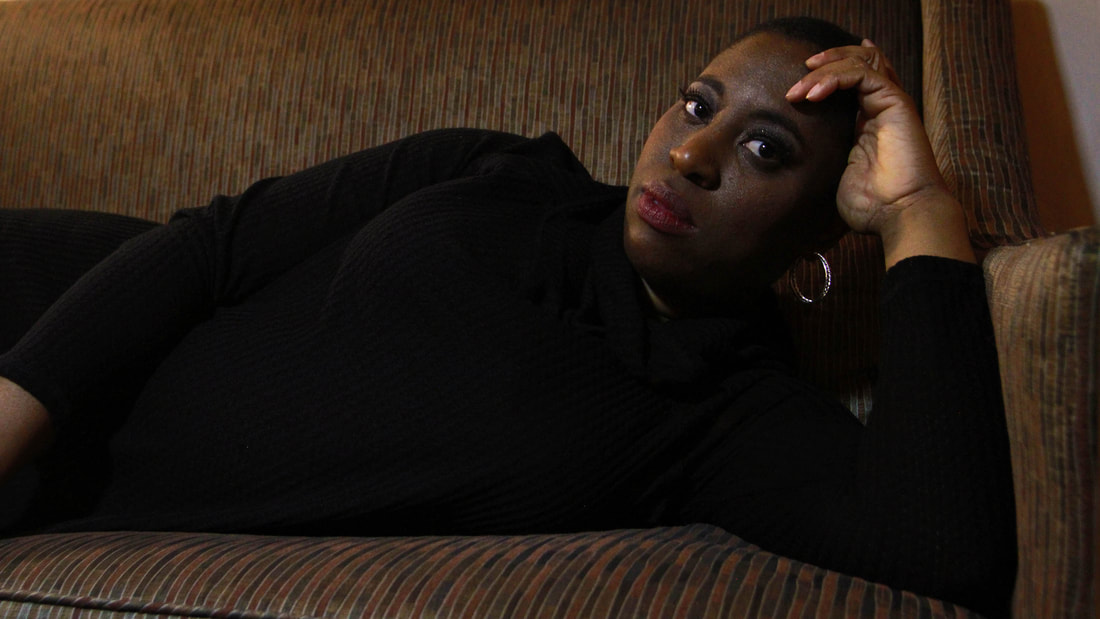
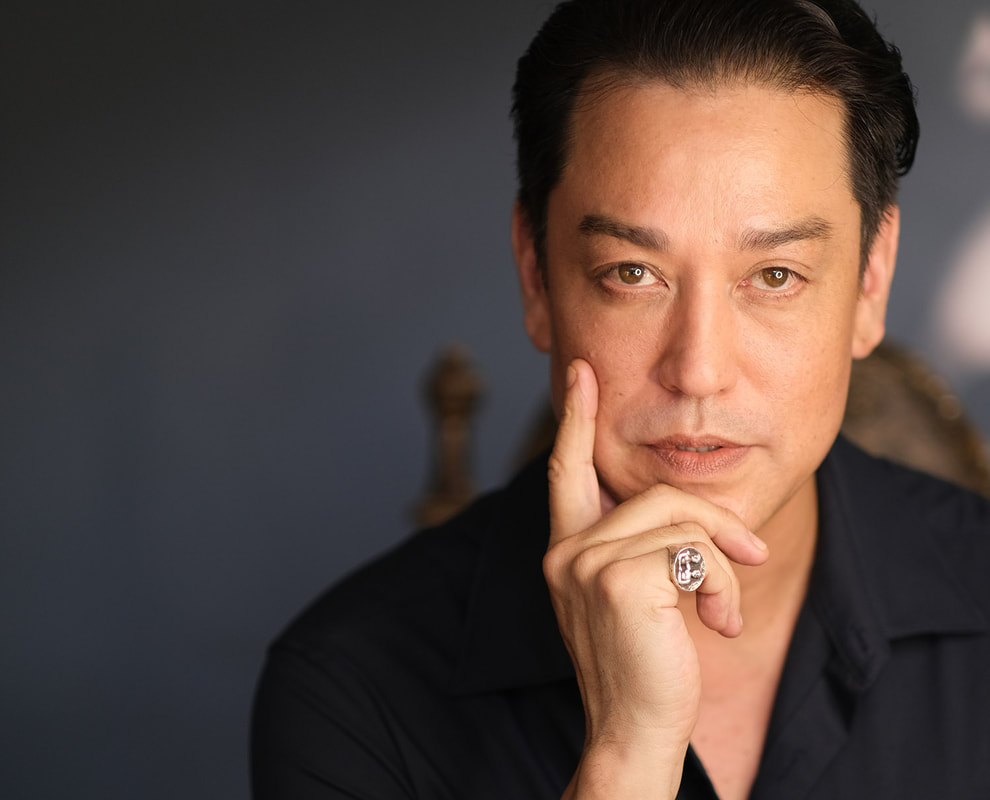
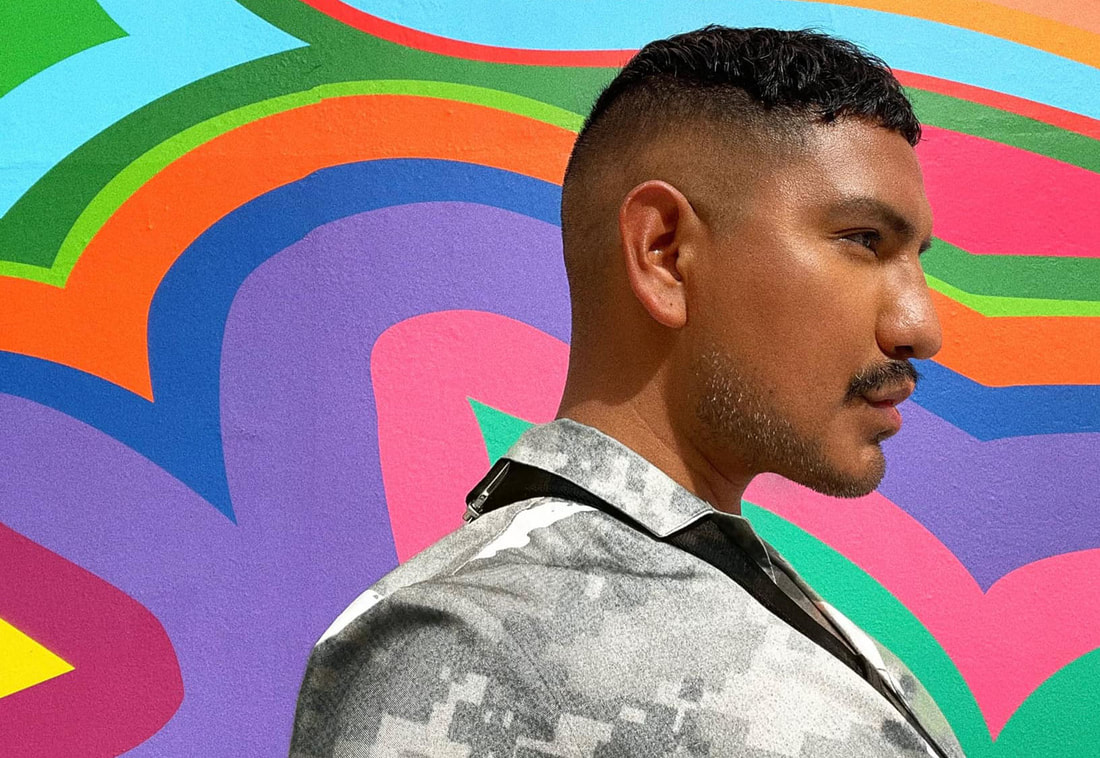
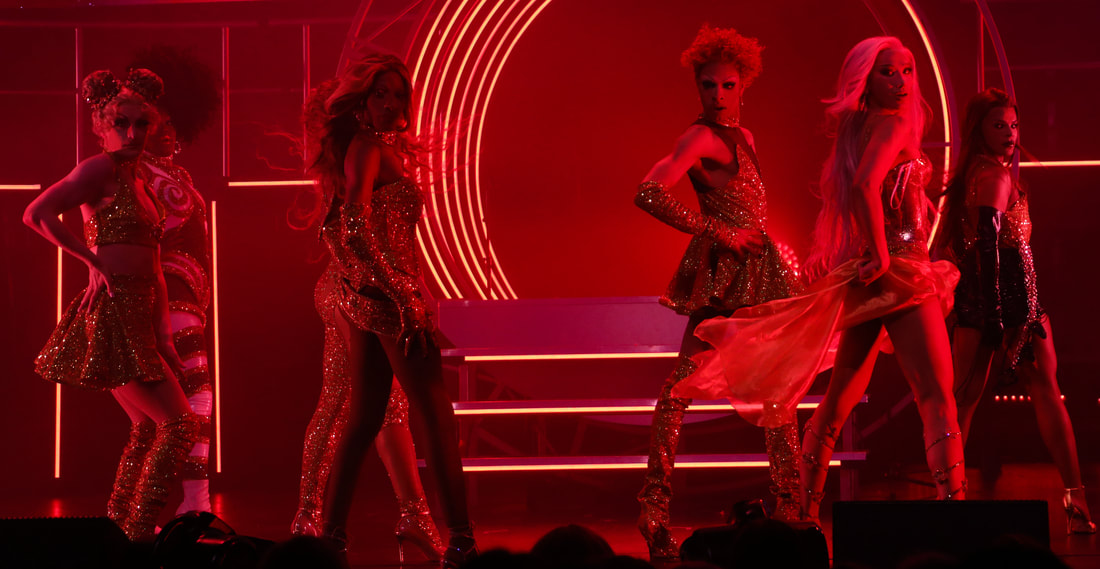
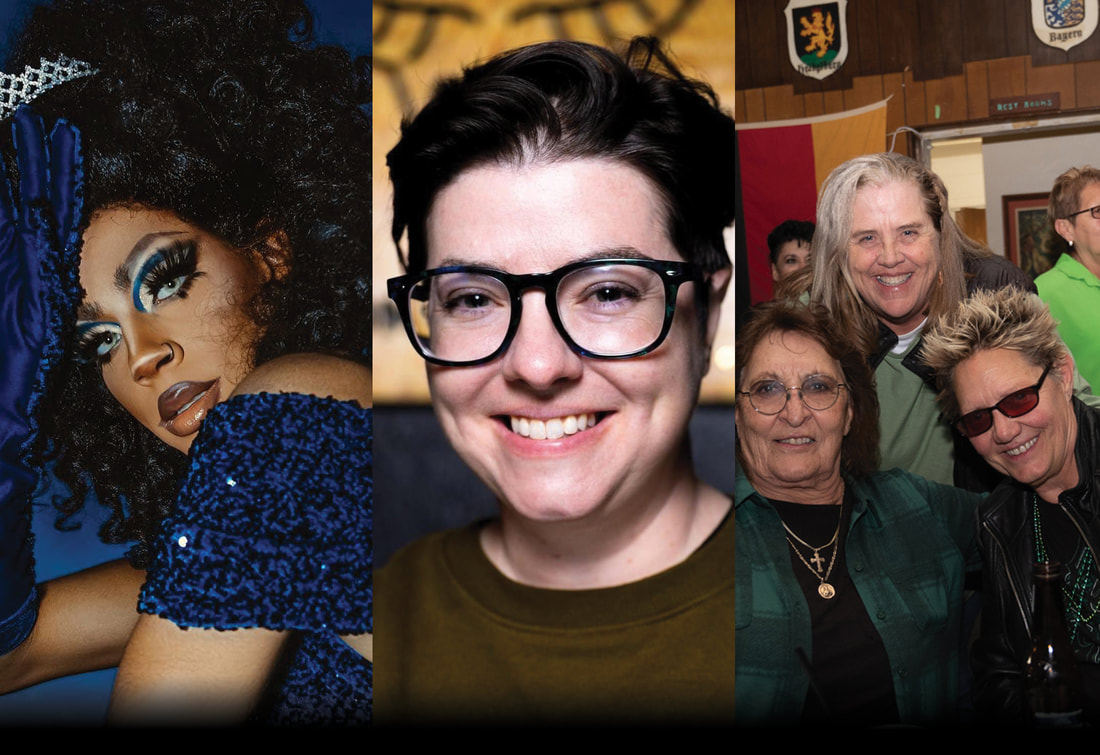
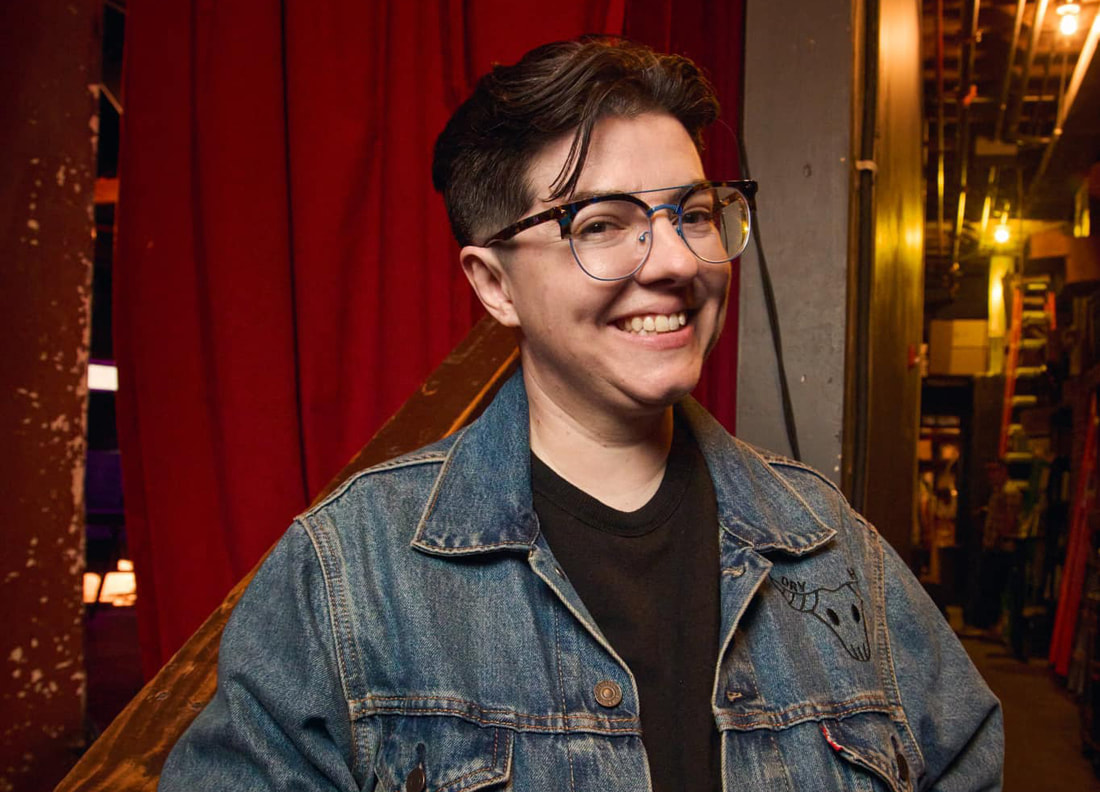
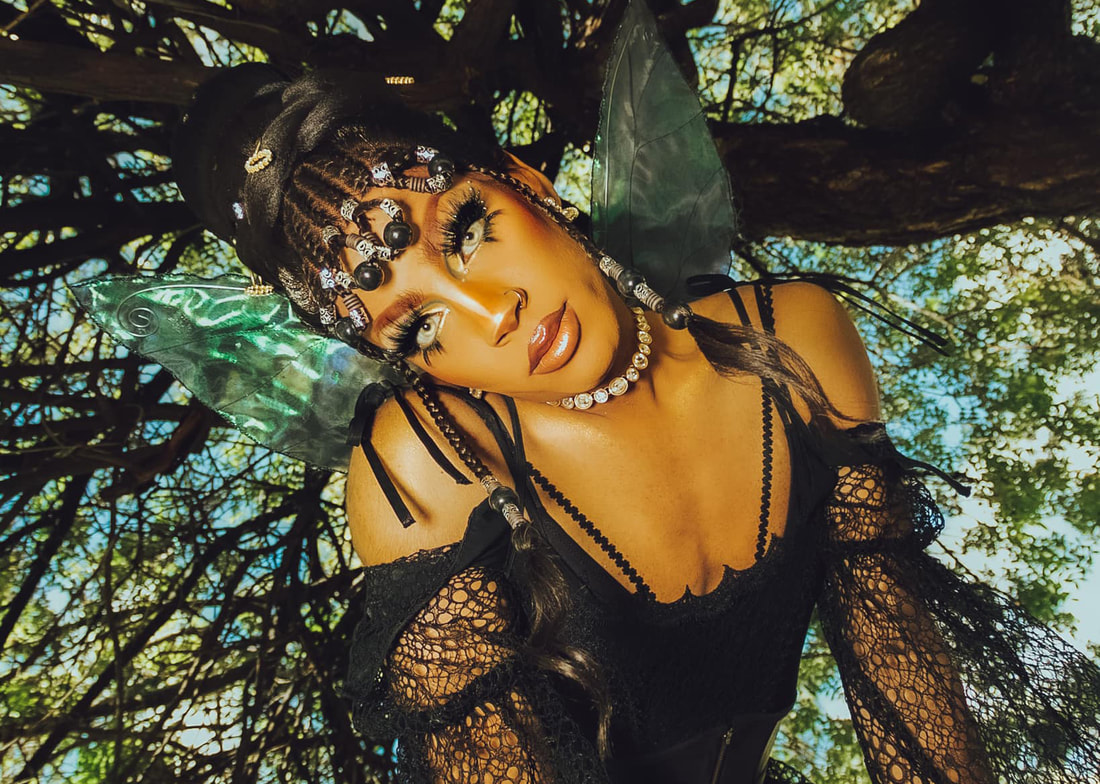
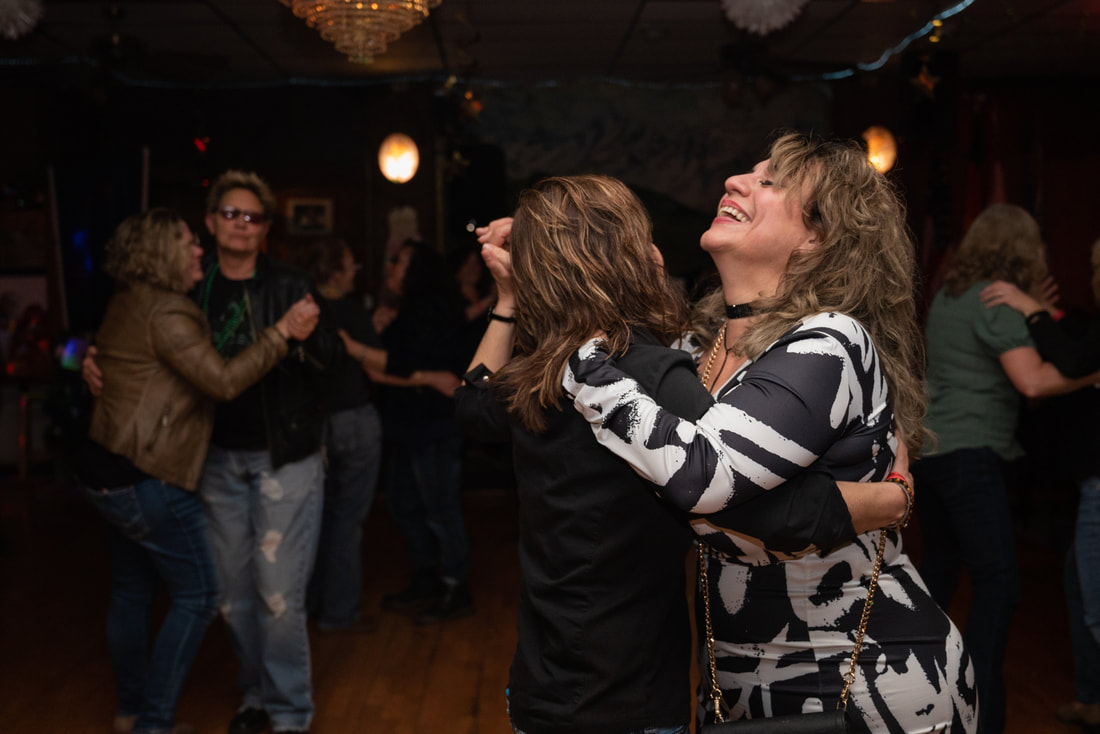
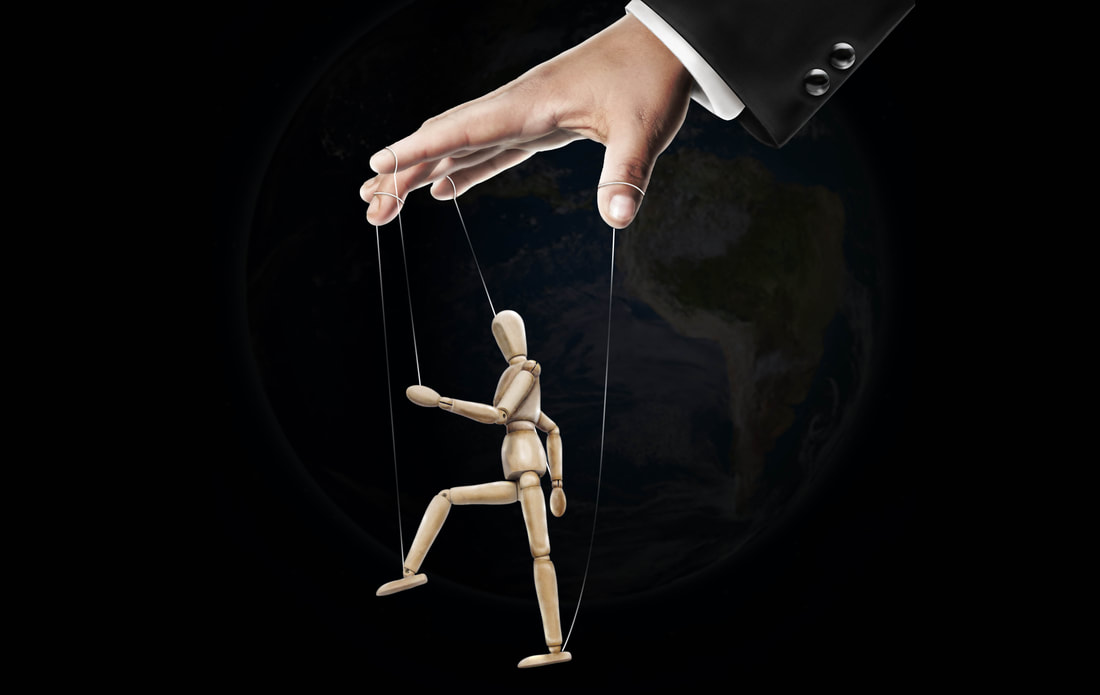
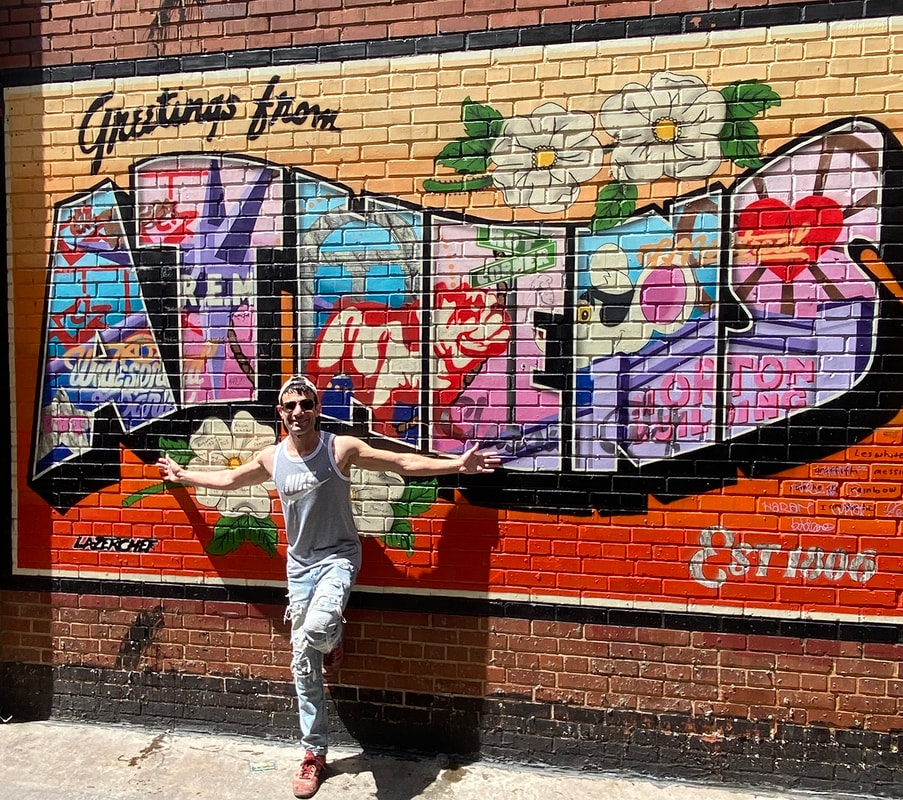
 RSS Feed
RSS Feed
